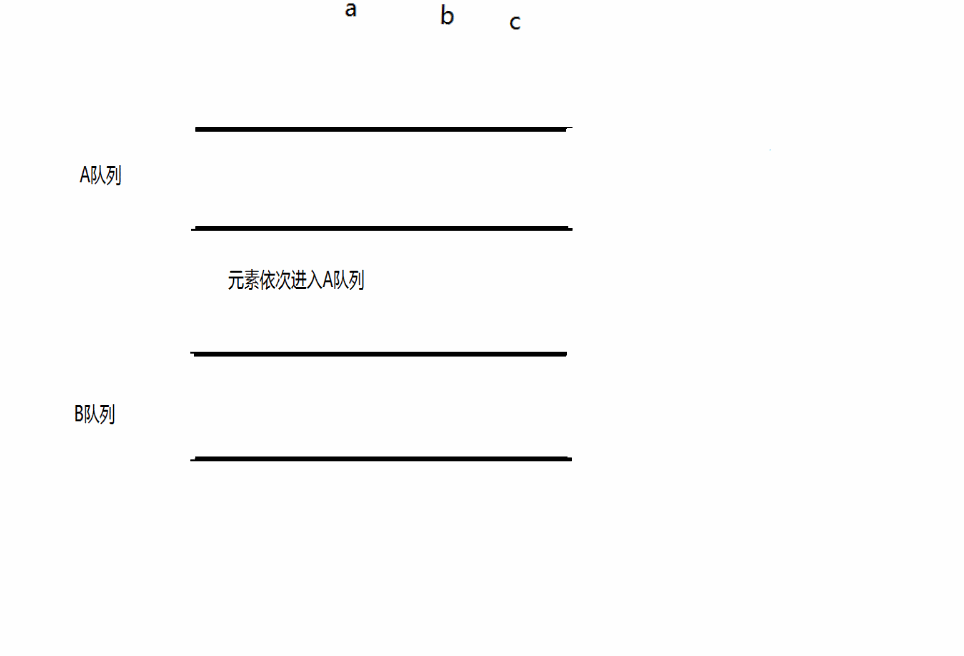用两个队列模拟实现一个栈的过程
Posted
tags:
篇首语:本文由小常识网(cha138.com)小编为大家整理,主要介绍了用两个队列模拟实现一个栈的过程相关的知识,希望对你有一定的参考价值。
栈具有“后进先出”的特点,即某个元素最后进入栈,却最先出栈;队列具有“先进先出”的特点,即元素从队尾依次进队列,依次从队头出队列;现在用两个队列模拟实现一个栈的过程,详细过程请看下面这张本人制作的gif图:
实现代码:
#include <iostream>
using namespace std;
#include <queue>
template <typename T>
class Stack {
public:
void Push(T elem);//向队列中添加元素
void Pop();//向队列中删除元素
T Top();//返回最后进入的头元素
bool Empty();//判断队列是否为空
int Size() const;//返回队列中元素个数
private:
queue<T> q1;
queue<T> q2;
};
template <typename T>
bool Stack<T>::Empty() //判断模拟的栈是否为空
{
if (q1.empty() && q2.empty())
{
return true;
}
return false;
}
template <typename T>
int Stack<T>::Size() const //返回模拟栈中元素的个数
{
if (!q1.empty())
{
return q1.size();
}
else
{
return q2.size();
}
}
template <typename T>
T Stack<T>::Top()//返回最后进入的头元素
{
if (Empty())
{
throw;
}
else if (!q1.empty())
{
return q1.back();
}
else
{
return q2.back();
}
}
template <typename T>
void Stack<T>::Push(T elem) //向队列中添加元素
{
if (q1.empty() && q2.empty())
{
q1.push(elem);
}
else if (!q1.empty())
{
q1.push(elem);
}
//q2不为空
else//两个队列不可能同时为空,因为在之前删除元素操作时,有一个必为空队列
{
q2.push(elem);
}
}
template <typename T>
void Stack<T>::Pop() //向队列中删除头元素,先进先出
{
if (Empty())//两个队列都为空,无法删除
{
throw;
}
if (!q1.empty())
{
while (q1.size()>1)
{
q2.push(q1.front());
q1.pop();
}
q1.pop();
}
//q2不为空
else //if (!q2.empty() && q1.empty())
{
while (q2.size()>1)
{
q1.push(q2.front());
q2.pop();
}
q2.pop();
}
}
int main()
{
Stack<int> s;
int i = 0;
for (i = 1; i <= 5; i++)
{
s.Push(i);
}
cout << "出栈的顺序为:" << endl;
while (!s.Empty())
{
cout << s.Top() << endl;
s.Pop();
}
system("pause");
return 0;
}
运行结果:
出栈的顺序为:
5
4
3
2
1
请按任意键继续. . .
本文出自 “岩枭” 博客,请务必保留此出处http://yaoyaolx.blog.51cto.com/10732111/1784121
以上是关于用两个队列模拟实现一个栈的过程的主要内容,如果未能解决你的问题,请参考以下文章
